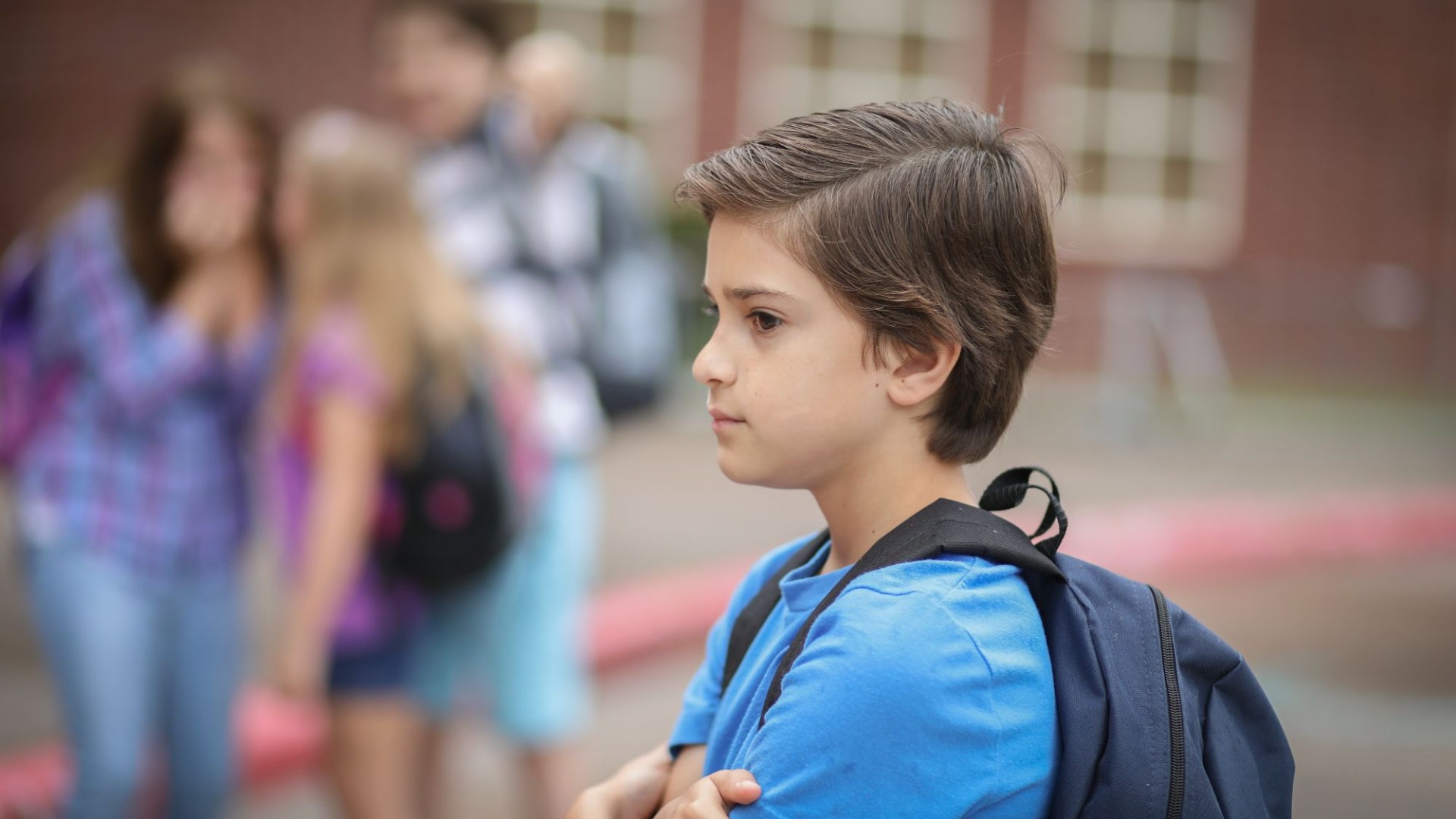FOUR in 10 children have no one at school to discuss their mental health with – and nearly half are worried about reaching out at all.
A survey of 1,000 11 to 18-year-olds who are still studying found 62 per cent have experienced feelings which have negatively impacted their emotional wellbeing.

1
But 26 per cent are reluctant to use school services because they are ‘embarrassed’ about their challenges, while 26 per cent are uncertain about who to approach.
Almost a quarter (23 per cent) don’t believe their problems are serious enough to warrant help, and 23 per cent don’t trust the staff at their school to support them.
As a result of these wellbeing struggles, 56 per cent have had mood swings, 46 per cent have experienced trouble with their sleep, and 37 per cent struggled with their schoolwork.
Lisa Mulherin, the chief executive officer for The Market Place, a mental health charity which supports young people, said: “It’s worrying so many young people still feel uncomfortable reaching out to their schools about mental health issues.
More on kids’ mental health
“This highlights the urgent need to do more to reduce the stigma surrounding mental health.
“Every young person deserves to feel safe and supported when discussing their wellbeing, whether that’s with teachers, school counsellors, or elsewhere.
“We must create environments where open conversations about mental health are encouraged and normalised, so no one feels alone in their struggles.”
The study also revealed 35 per cent have experienced an increased sensitivity to criticism because of the negative emotions they’ve faced.
Subsequently, 33 per cent became increasingly irritable or aggressive, while 31 per cent now have less interest in school activities because of it.
And 28 per cent have lost friends because of their worsening mental health.
Nearly two in five (38 per cent) attribute these feelings to the academic pressures they face, with the stress of a damaging relationship impacting another 32 per cent.
Others pinpointed their worries to peer pressure (28 per cent), body image issues (24 per cent) and bullying or cyberbullying (24 per cent).
Anxiety (60 per cent) was revealed as the most common negative emotion these young people have experienced.
And this is followed by many combatting bouts of stress (50 per cent), sadness (46 per cent), loneliness (30 per cent) and insecurity (29 per cent).
Signs your child might be depressed
Symptoms of depression in children often include:
- Sadness, or a low mood that does not go away
- Being irritable or grumpy all the time
- Not being interested in things they used to enjoy
- Feeling tired and exhausted a lot of the time
Your child may also:
- Have trouble sleeping or sleep more than usual
- Not be able to concentrate
- Interact less with friends and family
- Be indecisive
- Not have much confidence
- Eat less than usual or overeat
- Have big changes in weight
- Seem unable to relax or be more lethargic than usual
- Talk about feeling guilty or worthless
- Feel empty or unable to feel emotions (numb)
- Have thoughts about suicide or self-harming
- Actually self-harm, for example, cutting their skin or taking an overdose
Source: NHS
The study, which was conducted via OnePoll.com, went on to find those polled would prefer to seek help with their mental health at a young people’s support service rather than at their school.
Of these, 41 per cent believe it would be safer and more comfortable sharing sensitive information and 40 per cent expect it would be more neutral and less judgmental.
Whereas 39 per cent would prefer to seek these services because they are trained in mental health issues, providing more expert support.
Lisa Mulherin from The Market Place, which has launched a fundraising drive after suffering significant funding cuts this year, added: “It is vital young people have access to free, non-judgmental support for their mental health outside of the education environment, especially when many don’t feel comfortable seeking help within their schools.
“Charities provide a crucial lifeline, offering a safe space where students can talk openly about their struggles.
“However, many grassroots mental health charities are facing significant funding challenges, despite the desperate need for their services.
“More must be done to ensure these organisations have the resources they need to continue supporting our young people during such critical times.”
Help for mental health
If you, or anyone you know, needs help dealing with mental health problems, the following organisations provide support.
The following are free to contact and confidential:
Mind, www.mind.org, provide information about types of mental health problems and where to get help for them. Email [email protected] or call the infoline on 0300 123 3393 (UK landline calls are charged at local rates, and charges from mobile phones will vary).
YoungMinds run a free, confidential parents helpline on 0808 802 5544 for parents or carers worried about how a child or young person is feeling or behaving. The website has a chat option too.
Rethink Mental Illness, www.rethink.org, gives advice and information service offers practical advice on a wide range of topics such as The Mental Health Act, social care, welfare benefits, and carers rights. Use its website or call 0300 5000 927 (calls are charged at your local rate).
Heads Together, www.headstogether.org.uk, is the a mental health initiative spearheaded by The Royal Foundation of The Prince and Princess of Wales.




